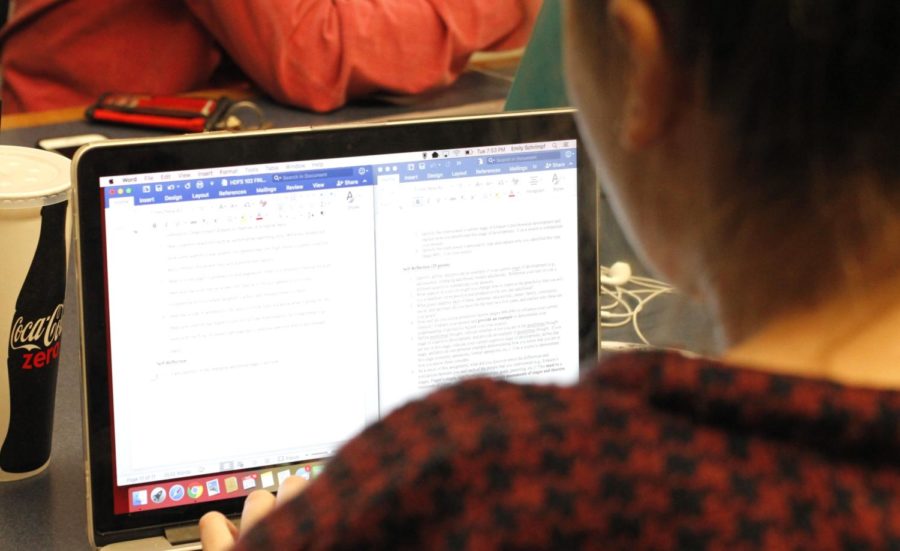Professors reflect on education strategies used throughout semester
Then-freshman Emily Schrimpf studies for a math exam at Parks Library on Nov. 29, 2016. Many other students are preparing for exams and finals coming up.
December 11, 2019
As final exams in classes begin, professors across Iowa State begin to reflect on education strategies and results from throughout the semester.
Cinzia Cervato, Morrill Professor in the geological and atmospheric sciences department, provided insight on how a professor prepares for Finals Week and shared her philosophy on how students can approach learning.
Cervato teaches the geology 100 ‘How the Earth Works’ course to approximately 200 students. Cervato said many of her students in the course are majoring in something outside of geology or physical sciences.
For the past 18 years, Cervato has also conducted work in science education, conducting research on how to best teach students scientific concepts.
As finals approach, Cervato said students do not take advantage of her office hours to communicate face to face, even when given the opportunity to review past exams.
“I offer to the students to have at least thirty minutes one on one [..] to review the test,” Cervato said. “Maybe four students out of the 200 that I have in the two sections have actually come this semester.”
Cervato said the few students that take advantage of a face to face meeting tend to either have very specific questions or are already doing well in the class.
Once the semester is nearly finished, Cervato said a handful of students will reach out, usually by email, for a chance to improve their final grade.
“If I give a half of a percent to a student, I have to give a half of a percent to everybody,” Cervato said. “You need to make decisions throughout the semester knowing that they are going to impact your grade.”
Cervato said this group of students tends not to be comprised of students failing the class, but rather students in the C- range who rely on scholarships and graduating seniors who took the class for an easy A, but became distracted from the material by other classes.
Cervato said a quote commonly expressed by those in education is “I do not give grades. Students earn them.”
After each exam in the semester, Cervato conducted surveys with students and gathered data on how students studied for the exam, how much time they spent studying for the exam and what they plan to do in preparation for the next exam.
Cervato said these surveys work to evaluate what was effective in their study habits and what can be changed to score higher on exams in the future.
“Study more isn’t necessarily a good strategy; study differently is.” Cervato said. “If you’re not happy with the outcome of what you’ve done, I am asking you to think about what you would do differently.”
Cervato presented her students with the idea of a “growth mindset versus a fixed mindset” during the semester. A fixed mindset individual will see failure as an inescapable result on uncontrollable factors, such as failing a class due to being naturally bad in a subject or due to an inadequate professor.
A growth mindset individual sees failure as an opportunity to learn and will adapt to challenges in order to overcome them. Cervato said reflection and surveys on study habits relates to teaching students how to face adversity with a growth mindset.
“You cannot control what I do or what the exam is,” Cervato said. “You can control what you do. Somebody with a growth mindset gets a failing grade and says, ‘Okay, what I did so far didn’t work. What can I do to change the outcome?’”
Students who are struggling in class can reach out to professors or teaching assistants earlier in the semester to find the learning strategies that work best for them. This can help them maintain a better grade throughout their semester, which could result in less stress during times like Finals Week.
“It is in your power and only in your control to change the outcome and pass the class,” Cervato said. “It has a lot to do with your attitude and the way you’re thinking about your learning.”







